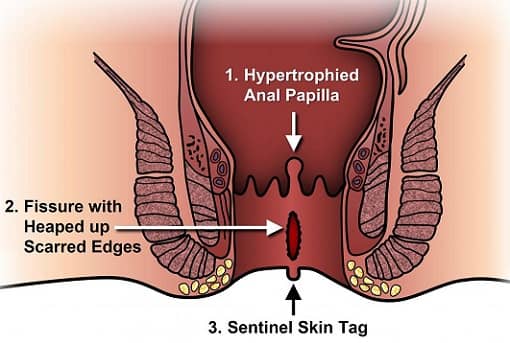As per an estimate, 20% of the Indian population suffer from anal fissures. If you do not know much about the anal fissure and if your doctor hasn't explained to you much about it, then let us go ahead and share some details about it. Anal fissures are small cuts or tears in the mucosal lining of the anus, which can lead to pain or bleeding during bowel movement. Doctors usually associate with other diseases like constipation, thyroid or a tumour. Some doctors can even confuse the anal fissure with the piles.
You need to have the correct diagnosis of anal fissure, and to treat the anal fissure, you would need minor surgery. These days, you have an option of open surgery or laser surgery to treat the anal fissure. If you are getting stressed by thinking about the anal fissure, then you shouldn't be. It is a minor surgery, and to help you deal with the anxiety, we have shared some information about anal fissure surgery below.

In the usual cases, the cost of anal fissure is not high. Most of the time, this procedure can be performed at the expense of less than Rs 25,000. The cost of the operations also depends on the hospital, city and the amount of anal fissure. In such a case of surgery can go up. Talking about the national average, the cost of anal fissure surgery is observed to be Rs 60,000 for open surgery. Laser surgery for an anal fissure can get slightly expensive, with the minimum amount being Rs 35,000 and the average being Rs 70,000.
Usually, the doctors recommend waiting four to six weeks before opting for surgery. The anal fissure can heal by themselves or by using the medication for this duration. You are recommended a high fibre diet and a stool softener to deal with the anal fissure. If you don't feel better or the doctor feels that the anal fissure is not healing, they go for the surgical route.
The anal fissure surgery is done under general anaesthesia. If the procedure is minor, the doctor may even use local anaesthesia for the surgery. After sedating you, a small incision inside your anus. After that, the doctor will give the anal sphincter an incision. This usually begins the healing process. In some cases, the stitches are given, while you may not get any stitches in some cases. A dressing will be placed inside your anus to control the bleeding, and the nursing staff will remove it after some time.
Usually, you are not admitted to the hospital for anal fissure surgery. It is a daycare procedure, and you are discharged after spending some time in the recovery room. In some cases, you are required to stay at the hospital for a day so that the doctors can monitor you. Many patients reported that the pain after the anal fissure surgery is much less than the pain of anal fissure.Post-surgery, you may face some pain during the bowel movements, so; you need to be on a high fibre diet with stool softeners. You would also need to take enough fluids. The maximum time that you will need to heal is between 4 weeks and six weeks. During this time, you should avoid any physical exercise.
Q1. What Is The Post-Treatment Prognosis In The Case Of Anal Fissure?
There are medical and surgical treatment options for anal fissures, and in both cases, it can take a few days for you to get back to your normal routine. However, you can expect to fully recover within 6 to 10 weeks. After the surgery, you may feel a little pain and there might be some bleeding. You don’t need to endure that much pain, just focus on eating a fiber-rich diet and maintaining good bowel habits, and you’ll be good for the most part.
Q2. Is There Any Non-Surgical Treatment For Anal Fissure?
If not disturbed for a certain time, the human body can heal these fissures itself. But because we need to excrete every day, that’s why anal fissures don’t get a chance to fully heal, instead, they get more damaged every time. There are some non-surgical treatment options like you can set yourself for a fiber-rich diet, stool softeners, and drinking more water so that stool comes out easily without damaging the fissures further. Things like warm tub baths of 10 to 20 minutes can not only help fissures heal but also prevent infections.
Q3. Is There Any Risk Of Colon Cancer Due To Anal Fissures?
It has been seen that anal fissures don’t cause colon cancer, however, you may feel some symptoms that indicate you have colon cancer, but the possibility is close to none. And to ensure that you don’t have any colon cancerous structures inside the rectum and around the dentate line, the surgeon may refer you for colonoscopy.
Q4. What Are The Common Symptoms?
One symptom you won’t be able to ignore is the sharp pain with itchiness around the anal opening. The pain can last for several minutes, and in some cases, the patient complains that the pain lasts for several hours. Other than that, during and after the excretion, you’ll notice bleeding.